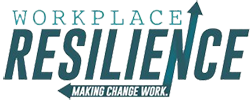 Do you know someone that is going through a bad time or has ever experienced a rough patch in their life?
Do you know someone that is going through a bad time or has ever experienced a rough patch in their life?
Let’s be honest-no one is immune to heartache. At some point in your life, you will go through a difficult time. You will be disappointed, disheartened, and feel like you can’t go on. You will think that this new CHANGE that has occurred is just way too much to handle.
How do I know this? Because there isn’t a person alive that gets through life without some bad scrapes and bruises. It’s part of the whole journey that is referred to as “life”. And at some point, it will be your turn to endure some difficult experience.
I have heard countless stories of getting fired from a job, grieving a loved one, not achieving your dream, having a loved one disappoint you and the list goes on.
So, here’s a couple things to remember so that you’re a bit more prepared and resilient for the next low point that you encounter:
This is only a moment in time.
When you’re going through this bad time, you don’t have perspective. You become so immersed in your pain and sadness that you neglect to understand that this is a temporary condition. This horrible pain is not going to last for eternity. This feeling is just for now and will eventually subside. The fact that the sadness is for now and will pass is always a tough concept for people to accept when they are in the midst of a disappointment. They feel trapped and can’t see outside the walls of their agony. But trust me, it will pass, and things will lighten up. Just keep repeating this to yourself.
You are not unique-we all have some burden to carry.
When you are going through a challenging time, it’s easy to look around and think that you are unique. It feels like everyone else is living a fairytale life while you are struggling to get through another day. Remind yourself of the truth-no one’s life is perfect and you are presently seeing the world through a distorted lens. Wallowing in this is not going to help you move forward.
You need to allow yourself to let go of the loss
People don’t like to feel pain. They will go to great lengths to avoid any hurtful feelings. However, there is a certain amount of pain you must walk through in order to get to the other side. Numbing the pain won’t work and neither will distractions and positive talk. Yes, they might give you some temporary relief, but the only way to truly move forward is to be honest and vulnerable with your feelings and be willing to trudge through it until you reach acceptance. Maybe then, you can get some understanding and put the pain and the experience in the right place.
You can’t rush the experience of finding meaning in your heartache. That comes only with time and the willingness to truly dig through your feelings. So have the strength and courage to face the situation and know that better times are ahead













